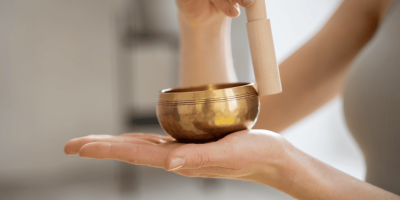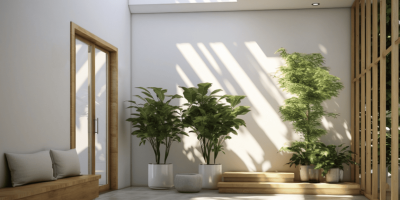Image source The Sentinel
- 10 magic ingredients you can find laying around the kitchen that you could use as an alternative, pocket, and eco-friendly fertilizer for your plants.
- Some ingredients you find laying around the kitchen can double as a fertilizer for your plants.
- Fertilizers are expensive and emit unwanted agents towards your plants, so it’s better to use organic ones instead.
When you live in Malaysia, it’s gardening season all year round. With our bright and sunny weather— excluding the occasional rainy days which don’t affect that much, it’s always the right time to start planting flowers, vegetables, fruits, and more!
If you remember what your science teacher taught you in school about the basic needs for plants, you would know that sun, water, and soil are some of the many ingredients your plants need to grow verdant and produce lush greeneries. As well as extra nutrients for your soil which fertilizers would come into play.
However, the use of fertilizers emits unwanted agents towards your plants. Not to mention, it’s also expensive and in this case, two negatives do not make a positive.
This is why, to help you gardening folks, we have listed out 10 things you can rummage through your kitchen cabinets and fridge to substitute the use of fertilizer with natural ingredients that will not be harsh towards your greeneries and wouldn’t burn a hole in your pocket. Talk about being economical.
Warning! May contain multiple scientific terms. Though, fret not because all you folks need to know is that these magic ingredients will help make your garden look pretty!
Coffee grounds
Image source The Spruce / Sarah Crowley
Not a coffee drinker to have coffee grounds lying around the kitchen? That’s okay.
Head over to your nearest coffee shop and kindly ask them for their unwanted used coffee grounds. Don’t worry, they would gladly give you because it ends up being thrown away at the end of the day anyway. So, might as well put it to good use.
Old or leftover coffee grounds have many uses. Specifically, it is the best alternative option for fertilizers as it contains essential nutrients for your soil such as calcium, potassium, nitrogen, phosphorus, and other micronutrients. Scatter the coffee grounds lightly at the base of your plant or add them into the compost pile. They will mix and help create rich soil.
Who said coffee could only boost your energy? Not us that’s for sure.
Banana peels
Image source Dainis Graveris
Smoothies, milkshakes, cakes, pancakes, bread, fritters, and now gardening? Oh, the wonders bananas could offer you are endless.
As we all know, bananas are a great ingredient when it comes to making delicious treats and desserts. To which, we would only use the fruit and get rid of the peels. What most of you don’t know is that the potash and phosphorus content in the peels will enrich the soil and strengthen your plants.
So, instead of throwing away the banana peels and making them peel left out (pun intended), keep them and use them for your garden!
Eggshells
Image source Gardening Soul
Another breakfast favorite that is healthy and filled with nutrients for your body and now even for your garden!
Similarly, just like the banana peels, the skin of this food should not be discarded either. Plants like tomatoes, peppers, and eggplants will benefit from shell fertilizer as it is high in calcium. Broccoli, cauliflower, swiss chard, and spinach will also benefit from the calcium provided by eggshells.
Done making your omelette? Now rinse, crush, and scatter the eggshells to your garden evenly.
Club soda
Image source Boylan Bottling
Excuse me, kind waiter, can I get a club soda, please? Not for me, but my garden.
Not only are club sodas thirst-quenching for your throat, but it is also for your garden! Researchers from the University of Colorado Boulder experimented on watering a group of plants with club soda for 10 days. Which resulted in the plants outgrowing the other control group.
Need we say more?
Tea leaves
Image source foodal
Black tea can reduce stroke, white tea has the most potent anticancer properties, green tea and oolong can improve cholesterol levels, and the combination of other tea leaves together can help your plants grow strong.
Got tea bags laying around in the kitchen? Cut them open and use the tea leaves at the base of your plant to give a nutritious boost to your soil. Used tea leaves provide necessary nutrition to the soil such as nitrogen, potash, and calcium.
Black tea, green tea, white tea, oolong tea, any tea leaves. Use them all!
Milk
Image source David Spero
We love it, kids love it, animals love it, and trust us, your garden will too! So, save some of that milk, or better yet get a new carton just for your garden.
Mix a solution with the ratio of half milk and half water into a foliar spray or whatever container you see fit (come on, DIY here people) and spray it around the base of your plants. Tomatoes, peppers, and squashes will benefit from it.
Alternatively, the milk can be used as a disinfectant for cleaning tools to prevent virus transmission.
Epsom salt
Image source Sophie Addison
Now, Epsom salt is not your regular salt and not many people have it in their kitchen cabinets. But some do. So if you’re a part of the ‘some’, well you’re in luck. With its magnesium sulfate nutrient, it will miraculously sweeten your tomatoes, profusely grow your roses, and grow fiery hot chilis.
Warning: normal sea salt will not give the same benefits.
Vinegar
Image source Focal Point
Not specifically for the soil, but when it comes to gardening, other factors surrounding your plants must be given extra care for. Like unwanted weeds growing at hard reaching areas. A solution other than plucking? Spray vinegar, it will help remove them.
After using the vinegar to help with your garden, use it as your salad dressing. YUM!
Baking soda
Image source Live Well Bake Often
If you love baking as much as gardening just as we do, then you must have baking soda kept in your kitchen cabinet for your cakes and pastries.
So, here is another not-fertilizer-related but still a helpful ingredient for your garden. If you want to prevent the bloom of fungal spores on your vegetables, then baking soda will do just that. It is most effective on vegetables and fruits where a regular application can minimize such problems.
Cooking, cleaning, and planting. What can’t baking soda do?
Cinnamon
Image source GI Society
Cakes, coffees, pies, cookies, savory poultry, and beef dishes. Cinnamon is another all-rounder ingredient that offers multiple uses in the kitchen and now to your garden too.
Just like human babies, seedlings are fragile and prone to diseases caused by bacteria. To prevent this, sprinkle cinnamon on the soil where you plant seeds. It will help keep them safe and grow healthily.
Remember not to use up all the cinnamon for your cooking folks!
So, there you have it. 10 magic ingredients you can find laying around the kitchen that you could use as an alternative, pocket, and eco-friendly fertilizer for your plants. No more hassle of going out and carrying back home those heavy bags of fertilizers anymore.
Know any other kitchen ingredients we could use for the garden? Let us know in the comments below!










2 Comments
Comments are closed.